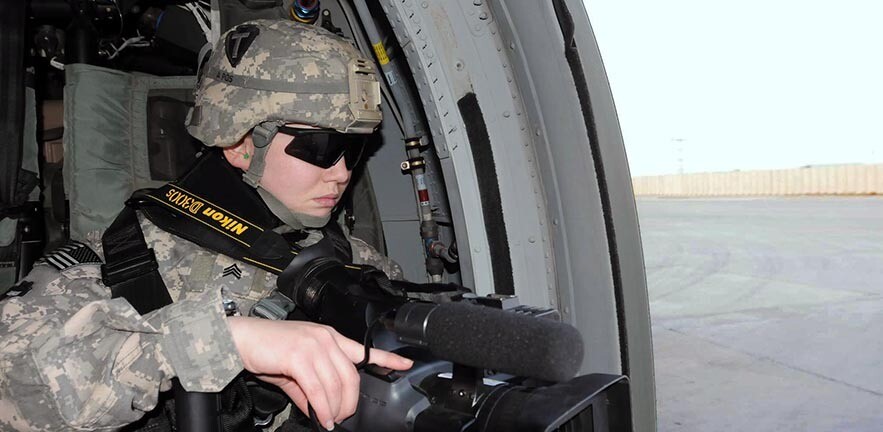Business school education offers a well-trodden path for those stepping out of the military. An MBA provides new approaches to leadership and team dynamics that go beyond the chain of command and presents the perfect stepping stone for those looking for the next challenge in their career.
According to US Army veteran and current student Katherine Danielson (MBA 2020) the Cambridge MBA is the “best step a veteran can take.”
The programme’s focus on practical project work, the former army journalist says, is just one of the exceptional Cambridge opportunities that complements military service so well.
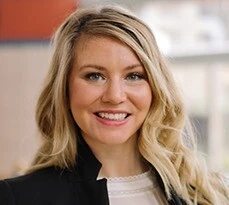
“I learn by doing. I jump in, get my hands dirty, and figure things out. I needed a place where that is not only allowed but is encouraged through the curriculum and the faculty’s attitude towards learning.
“The Cambridge MBA’s experiential programme and specialised MBA Concentrations are just the kind of experiences I wanted to have during my MBA,” says Katherine, now working through her final MBA term as a Summer Associate Investment Banking at Citi Bank in New York, USA.
“There are almost endless possibilities whatever your ambitions are. Students can get involved with global companies, consulting projects, case studies, competitions and conferences.”
Active-duty advantages
After completing more than 45 combat missions in Iraq and the numerous international assignments during her seven years in the Army, Katherine is in no doubt of the transferable skills that veterans can contribute to an MBA programme and the corporate sector.
“The army conditions you to stay calm under intense pressure, to think strategically, and solve problems methodically. We are already primed to deal with the stress and high stakes involved in business life.
“The Cambridge MBA is the bridge that cultivates the necessary communication, management and quantitative knowledge for success in our next chapter outside the military.”
However, as Katherine acknowledges, while military experience can be a significant career asset, “transitioning into civilian life is difficult”.
“The first few years out of the military can be very disorienting for a person’s identity, direction, and sense of purpose. I was fortunate to go to school right away to get my undergraduate education, but I watched many of my peers struggle.”
During her undergraduate programme, studying International Relations and Global Studies at the University of Texas, Katherine co-founded Zen Monkey Overnight Oatmeal, which produces pre-packaged oats and muesli sold in grocery stores across the United States.
With the addition of her Cambridge MBA, Katherine believes it is possible, “literally to pursue any career.”
“I started as a broadcast journalist, and I have moved into investment banking. They are worlds apart.”
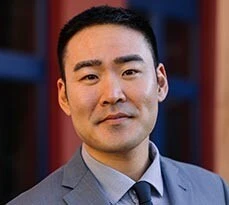
An inspiring ecosystem
Matthew Hou (MBA 2020) looked to the Cambridge MBA to gain a world class education and the credibility of a global brand, he says, “that will carry across the six or seven different career changes our generation is likely to have.”
When Matthew arrived for his first interview in Cambridge, he was weighing up a number of MBA offers. A new international relationship, however, was soon to begin.
“I fell in love with Cambridge: the Formal Hall dinners, the beautiful Colleges and just meeting so many exceptional people.
“I was impressed by the deep connections between the Business School and the University of Cambridge community. Cambridge MBA students are immersed in an unparalleled environment, rich with history and innovation that is brimming with collaborative opportunities during formal studies, as well as during personal time.”
As a former logistics officer in the Canadian Armed Forces, Matthew has a diversity of experiences not commonly found among a typical MBA cohort. During nine years of service, he directed emergency supply chains during natural disasters in Canada, and in Afghanistan Matthew led road convoys during a mission with frequent rocket attacks. He completed an MPA (Master of Public Affairs) at Sciences Po, after leaving the army in 2019.
As a ‘Veteran Ambassador’ at Cambridge, Matthew will continue his relationship with the services community to help many more military applicants transition into the Cambridge MBA programme, and overcome any barriers they feel might hold them back.
“It wasn’t such a rough transition for me from the Canadian military into the Cambridge MBA because of the amazing cohort. There was a lot of mentorship with peers, who gave really honest and useful feedback.”
After graduating Matthew is excited to apply his MBA skills in a public sector consulting career that will improve supply chains, diversity and inclusion, and hybrid work across the whole of Canada’s government.
Swinging the MBA vote
For Matthew, Katherine and other veterans, the international network and outlook of the Cambridge Judge Business School have been influential factors in their decision to join this MBA programme.
“From the start of the application process I found that the easy availability of Cambridge MBA graduates to get advice from was different from other networks within MBA programmes. It is a tight-knit, global, and highly responsive alumni network,” Matthew says.
In most years, some forty nationalities are represented in a class of around two hundred students, with equally diverse backgrounds to be found among the faculty and alumni at the Cambridge Judge Business School.
“Having travelled extensively with the military, it was really important to me to continue to work and collaborate with people from all different kinds of backgrounds in a supportive environment. The Cambridge MBA really stood out because of its international emphasis,” adds Katherine.
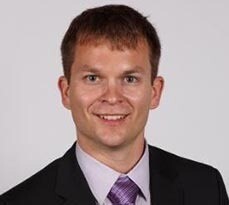
Students find that ongoing access to the growing professional networks of their international cohort is of lasting benefit after graduation.
“The international experience is exceptional in that it broadens your perspective in both a professional and personal sense. After the MBA you can travel to almost any country in the world and have an old classmate waiting at the other end!” says Jack King (MBA 2015), now working at the US Department of Justice.
Jack describes himself as the typical “career switcher” when he moved to Cambridge in 2015 after serving in the US Army as an intelligence officer for over three years. The MBA programme gave him first-hand knowledge in a number of fields and career opportunities. As a result, he says he gained a much better understanding of what interested him and what didn’t.
“Honestly, what is so appealing about Cambridge is something intrinsic to the military – your best experiences come when you extend far outside your comfort zone.
“Cambridge wasn’t the school close to home and it wasn’t the school with three dozen other military veteran students. Instead, it’s the school that gives you the chance to be challenged by and learn from the best cohort in the world.
“It is a true privilege to measure yourself against that group every single day. I would absolutely recommend Cambridge to military veteran personnel,” Jack concludes.
Promoting military applicants
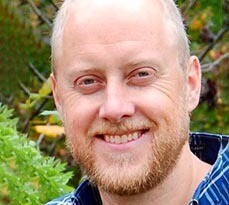
The Cambridge MBA has propelled graduates from a services background into positions in companies such as Amazon, Google, IT consulting at Booz Allen Hamilton, and leading investment banks.
Dave Johnson (MBA 2012) spent six years in the US Navy as an Intelligence Officer before choosing to do an MBA.
“An MBA was an option to transition my career and help future employers bridge the experience gap and better understand how my experience would translate into the civilian world. After graduating, my MBA gave me the curiosity and the confidence to pursue a number of different career paths, from initially consulting for a startup in London to working in product management in video games to Amazon and now working for Lowe’s Companies as Director of Product Management.
“Each step of the way a common narrative has been how the MBA from Cambridge has stuck out as a unique life experience and a unique story, and the entire experience in Cambridge was life changing.”
Dave, a self-proclaimed ‘triple jumper’, embraced a new career path, a new geography and a new industry sector.
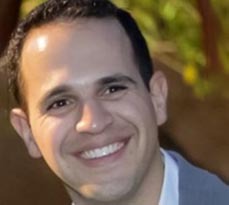
He says he never would have had the confidence to develop a start up with some of his classmates at the time and to consider an entrepreneurial career path, had he not been through the programme at Cambridge.
Similarly, for Guy Sustiel (MBA 2014) who graduated in 2015, Cambridge became the perfect springboard into the fast-growing tech sector.
Now working as Regional Head of Strategy, Operations and Growth at Google, Guy had spent a decade as Commander and Head of Operations in the Israeli Air Force.
“For me when I arrived in Cambridge, I thought I would be overwhelmed by the scale of the University of Cambridge environment, but instead I found the class size at the time, intimate and my peers down to earth, and I realised I could thrive in that environment.”
This content, among other contributions, was recorded during a CJBS Military Webinar hosted by our MBA Admissions team in December 2020, with our CJBS alumni and current students from Cambridge MBA Class of 2020.
The school’s commitment to supporting, promoting, and celebrating military personnel starts right at the beginning of the MBA journey. For graduates who are currently in military service or who have just left, financial assistance may be available from The Cambridge MBA Military Personnel Scholarship.
In addition to the Scholarship, Cambridge Judge Business School continues to be a GMAC military-friendly school and candidates from the military are eligible for an application fee waiver. If you intend to make use of this waiver, please contact the MBA Admissions staff before you submit your application.
On joining the Cambridge MBA programme students are invited to join the Veterans at CJBS Initiative, developed by another alumnus and MBA Military Personnel Scholarship recipient, Cameron Behal, in 2019/20 and now strengthened by Matthew Hou and Katherine Danielson, working across the current cohort this year.


